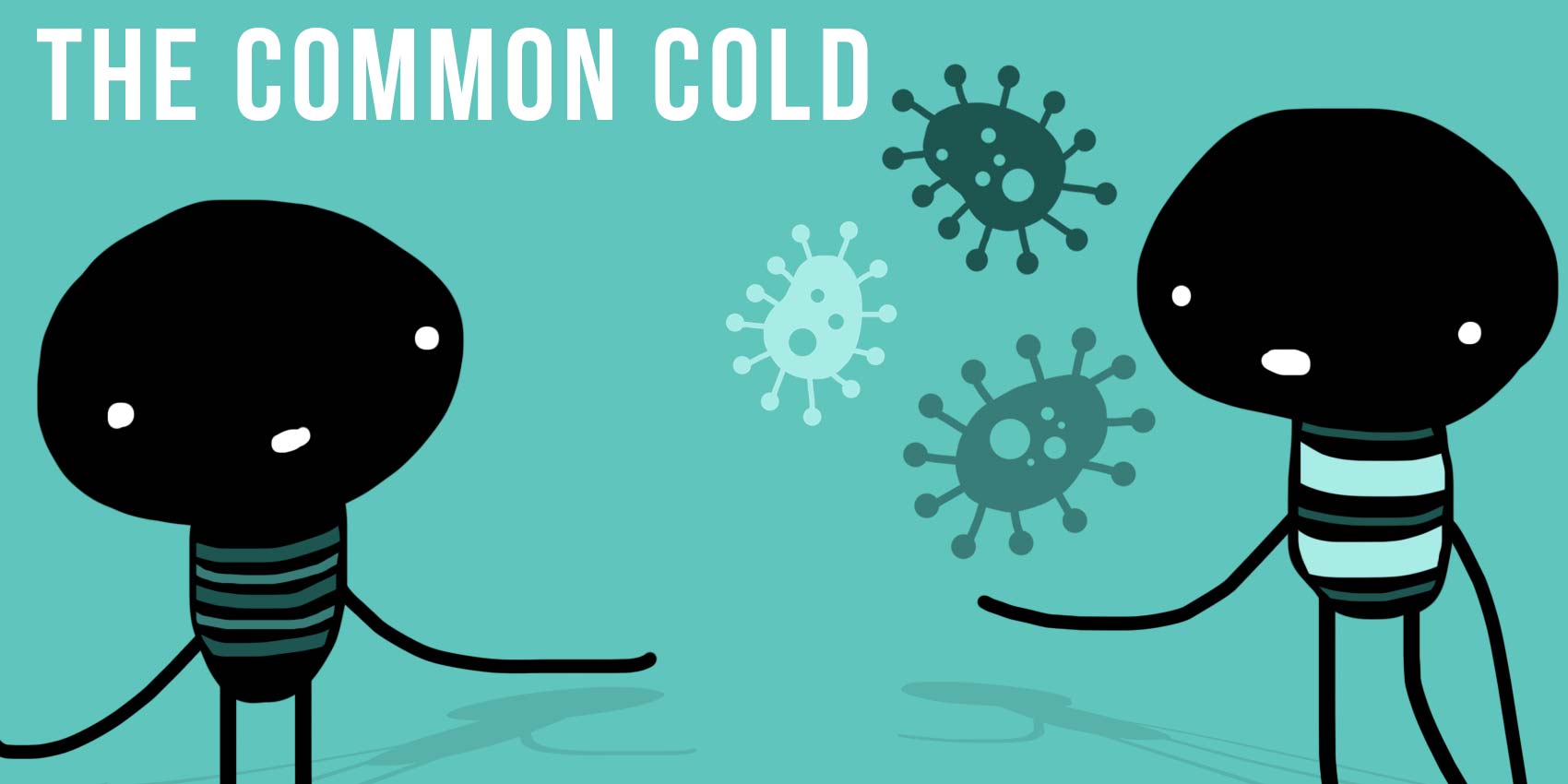14 Sep The common cold

Is there anything worse than getting sick before the big dance, the big game or the big test? Not really. We need to perform at our best during those times and when the common cold hits us, BANG, we can get knocked down—and it’s a total bummer.
Would like to learn how you can reduce your chances of getting a cold and also learn how to not spread it around to friends and family?
We’re hoping you said, “Yes. Totally. Of course!”
The common cold is the most popular communicable disease. And popularity among diseases is not like in your classroom. A cold is a viral infection of your nose and throat—aka your upper respiratory membranes and it is our least favorite company to keep. Highly contagious, once you feel a cold coming on, it would be so kind of you stay home and take care of yourself. By staying away from others during your contagious period (that’s the time in which a particular disease can be spread from person to person, which is the first 2-3 days of a cold), you not only help others, you help yourself as you will likely rebound faster, rather than running yourself ragged and making symptoms worse.

DID YOU KNOW? Each year 22 million days of school are missed due to students having colds.
(Source: https://www.webmd.com/cold-and-flu/common_cold_overview)
How do you know if you have a cold? The primary symptoms are:
- runny nose
- nasal congestion
- sneezing
- sore throat
- cough
- headache or body aches (you may have a very low fever)
- general feeling of ickiness (a new medical term!)
You can catch a cold when someone sneezes, coughs or talks too close to you! You can also catch a cold from touching an infected surface like a door or your friend’s cell phone and then touching your eyes, nose or mouth. Remember: viruses don’t need a living host to survive like bacteria do, so they can hang out on everyday surfaces just waiting for someone to pick them up. Symptoms usually occur within 1-3 days of coming in contact with the virus.
So then how can I best prevent myself from catching a cold?
The number one advice you will hear over and over is…. (drum roll….) WASH YOUR HANDS, OFTEN!! And, you should wash them with soapy water for at least 20 seconds.
Also, if you or someone in your family has a cold, you need to disinfect surfaces, toys, phones, door knobs, etc. all the things that may have come in contact with the sick person’s hands/germs must be cleaned properly because, again, the virus does not need a host—it can live on surfaces and be spread that way.
Definitely sneeze and cough into a tissue or the inside of your t-shirt (meaning, you lift up the collar of your shirt and sneeze down into your chest area). Of course it’s common sense not to sneeze or cough into your hand and then go touching things. That’s why people say to do so into your elbow, which is better than sneezing into your hand for sure, but still may not contain all the spray. If you’re sick, don’t spread it, stay home and take care of yourself!
Most of all, just take really good care of yourself so you don’t get run down and become more prone to getting sick in the first place.
How do you best treat a cold?
REST AND PLENTY OF FLUIDS.
Over the counter meds might make you feel better but they don’t make the cold go away any faster. Plus, some people are concerned that they may mask the symptoms and trick you into thinking you are all better. Then you may go out and possibly infect other people, and also wear yourself down when you should be on the couch watching reruns and getting better.

DID YOU KNOW? Chicken soup may really help you fight the infection through the fluids, heat and salt.
How long does a cold last?
Usually about a week or less. If you have symptoms for more than that time, see your doctor as some colds can turn into bacterial infections for which your doctor may prescribe antibiotics. For example, sometimes the mucus from the cold can cause bacteria to grow in your sinuses, or ears, causing an infection that needs antibiotics.




Answer the post question here
What's being said